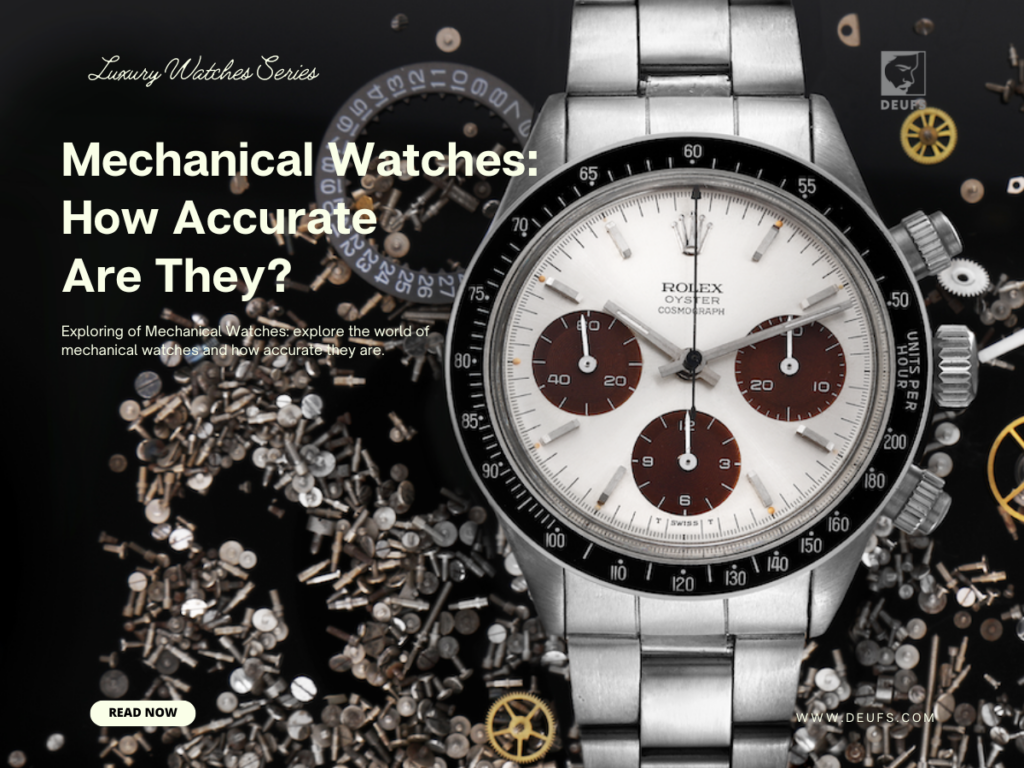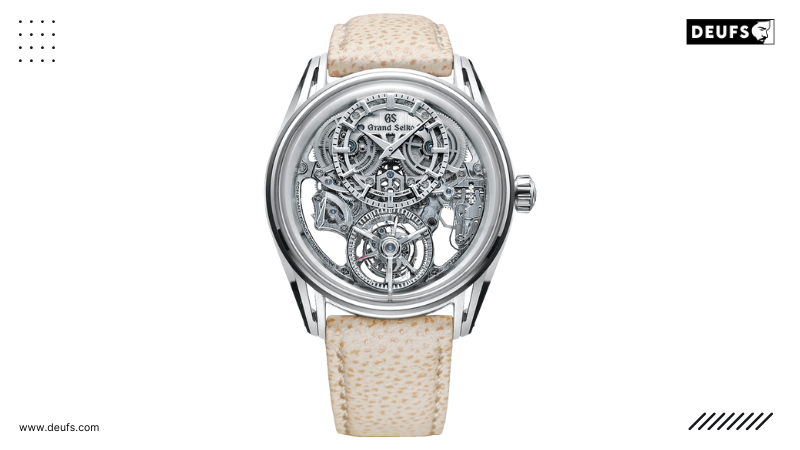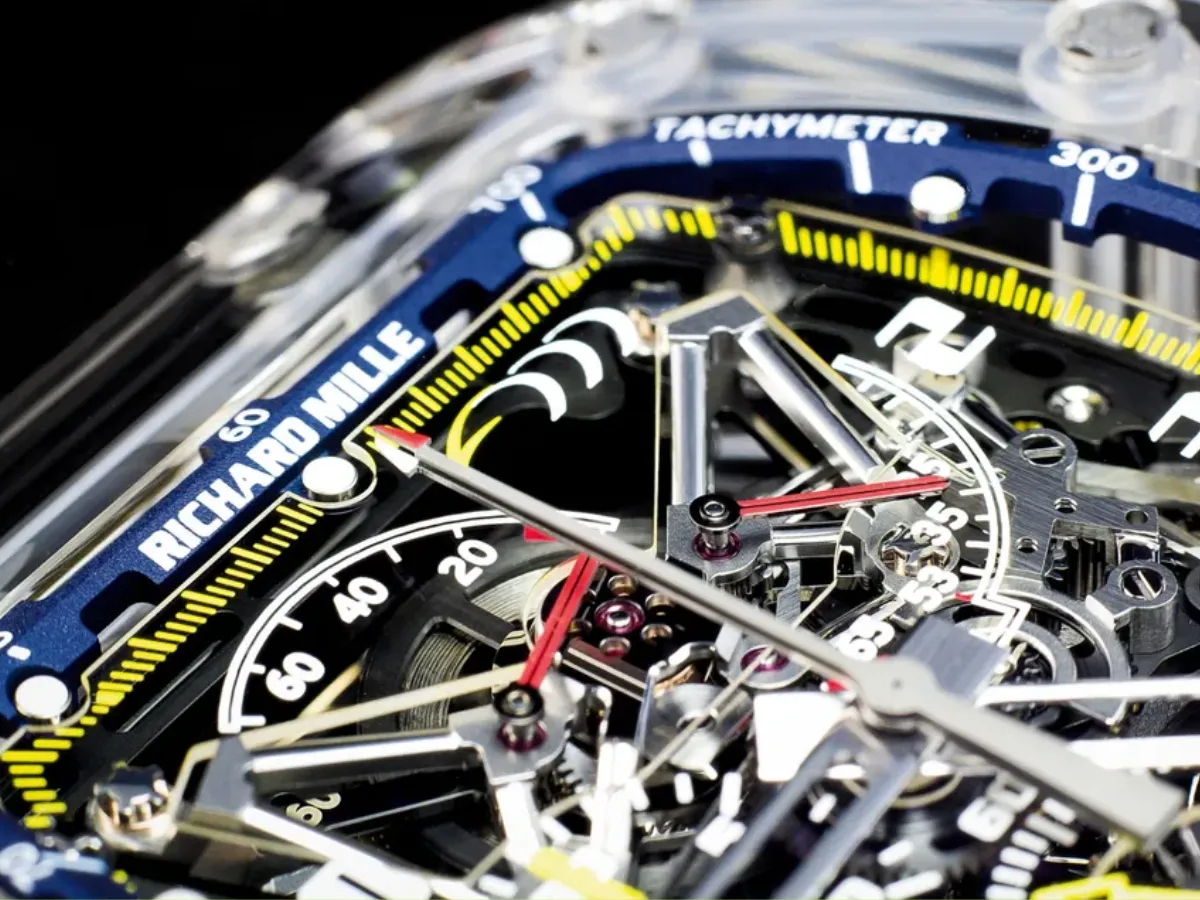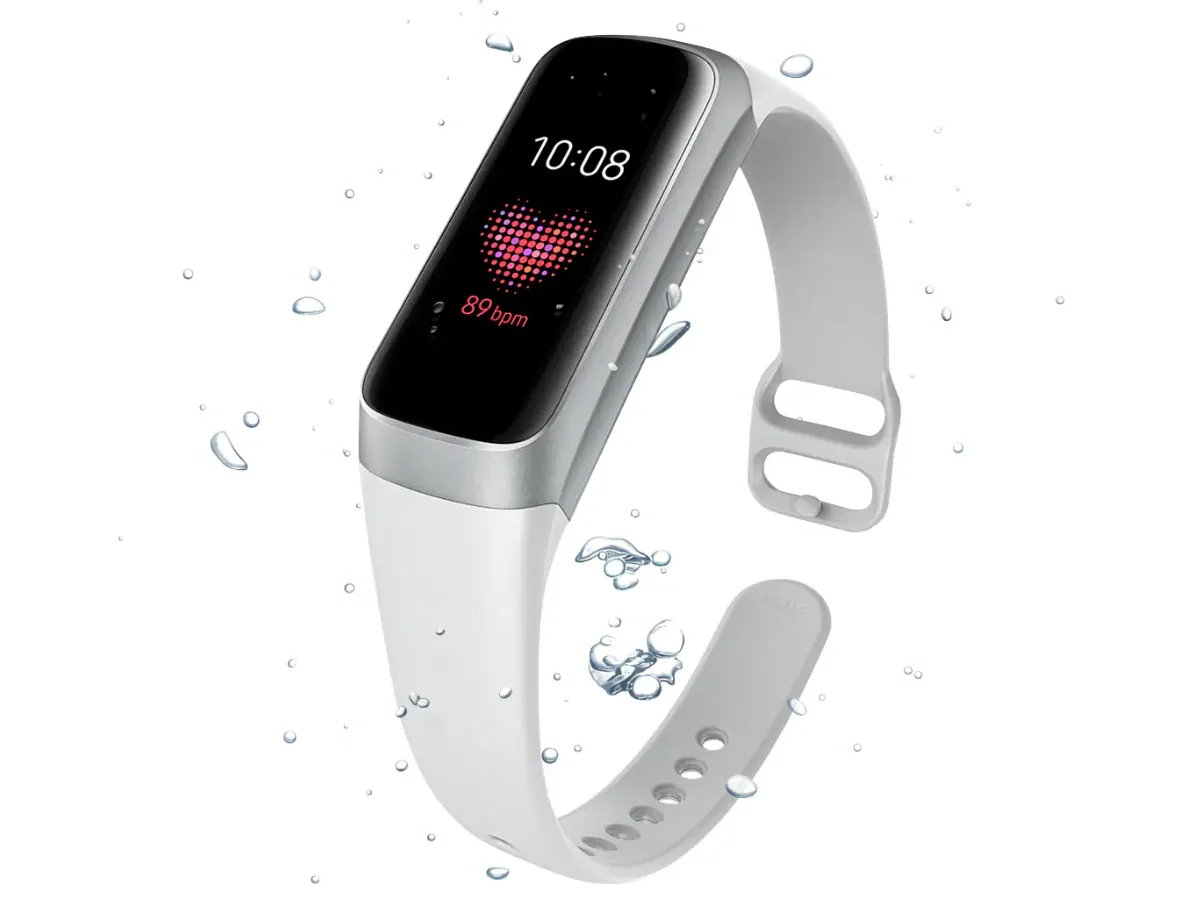
Introduction
Greetings, watch enthusiasts! You’ve come to the right place if mechanical timepieces are your thing or if you’re thinking about getting one for the first time. In this post, we’ll explore the world of mechanical watches and how accurate they are.
We’ll look at how these interesting machines work on the inside, think about the factors that affect how accurate they are, and compare them to their quartz counterparts. By the end, you’ll know more about the precision of mechanical timepieces and what you can do to keep them accurate. So let’s get going!
A Brief History of Mechanical Watches
Mechanical watches have been around for centuries, with the earliest known examples dating back to the 16th century. These early timepieces were highly complex, with intricate mechanical movements powered by various energy sources, including weights, springs, and even gunpowder.
Over the centuries, mechanical watches have undergone numerous innovations and improvements, and today they are widely considered the most sophisticated and prestigious type of watch. Despite the rise of digital and quartz watches, mechanical timepieces have remained popular with collectors and watch enthusiasts due to their intricate craftsmanship and enduring beauty.
How Mechanical Watches Work: The Inner Mechanics

Mechanical watches are powered by a spring wound by hand or automatically at their most basic level. As the spring unwinds, it powers a series of gears and other mechanical components that drive the watch’s hands and any additional complications (such as a chronograph or date display).
But how does this mechanical movement keep time? The answer lies in the escapement, a small device that controls the release of energy from the watch’s spring. The escapement consists of a balance wheel and a pallet fork, which work together to regulate the movement of the watch’s hands. As the balance wheel oscillates back and forth, it causes the pallet fork to lock and unlock the escape wheel, releasing a small amount of energy each time. This regular, controlled release of energy is what drives the watch’s hands and keeps time.
The Importance of Accuracy in Mechanical Watches
For most people, the primary function of a watch is to tell time accurately. But how accurate are mechanical watches, really? In the past, mechanical watches were known for their relatively poor timekeeping compared to quartz watches, which use a battery-powered oscillator to keep time. However, modern mechanical watches are much more accurate, thanks to improvements in design and manufacturing.
But why does accuracy matter? For one, an accurate watch is simply more convenient to use. If your watch is consistently running fast or slow, you’ll need to constantly adjust the time, which can be frustrating. Additionally, an accurate watch is essential for certain applications, such as timing sporting events or scientific experiments.
Factors Affecting the Accuracy of Mechanical Watches
So, we know that mechanical watches can be accurate, but what factors affect their precision? Here are a few key considerations:
- The quality of the movement: The movement is the heart of a mechanical watch, and the quality of its components can have a big impact on accuracy. Higher-end movements are typically made with more precise components, which can improve accuracy.
- The position of the watch: Most mechanical watches are designed to be worn on the wrist, and their accuracy can be affected by the position in which they are worn. For example, a watch may run faster when it is vertical (such as when it is worn on the wrist) than when it is horizontal (such as when it is placed on a table).
- The age of the watch: Like any mechanical device, a watch will wear over time, and this can affect its accuracy. As the watch ages, its movement may become less precise, leading to a loss of accuracy. Additionally, the lubricants used in a watch’s movement can dry out over time, which can also affect its accuracy.
Comparing the Accuracy of Mechanical and Quartz Watches
As we mentioned earlier, quartz watches are generally more accurate than mechanical watches. But how much more accurate are they?
In general, quartz watches are able to maintain an accuracy of +/- 15 seconds per month, while mechanical watches may have an accuracy range of +/- 30 seconds per day. This means that a quartz watch will typically lose or gain less than half a minute per month, while a mechanical watch may lose or gain several minutes per day.
However, it’s important to note that these are just general guidelines, and the accuracy of any given watch will depend on a variety of factors. For example, a high-quality mechanical watch with a well-made movement may be more accurate than a low-quality quartz watch. Additionally, the accuracy of any watch can be affected by external factors, such as temperature, shock, and magnetism.
Mechanical Watch Accuracy: Myth or Reality?
Given the differences in accuracy between mechanical and quartz watches, it’s easy to see why some people believe that mechanical watches are inherently less accurate. However, this is a myth. As we’ve seen, modern mechanical watches can be just as accurate as quartz watches and, in some cases, even more so.
In fact, many watch enthusiasts argue that the beauty and craftsmanship of a mechanical watch make up for any slight differences in accuracy. After all, a mechanical watch is a work of art as well as a timekeeper, and its intricate movement is part of its charm.
Top Brands in the Mechanical Watch Industry
If you’re in the market for a new mechanical watch, you’ll have no shortage of options. Here are a few top brands to consider:
- Rolex: Known for its luxury and precision, Rolex is one of the most iconic brands in the watch industry. Their mechanical watches are some of the most accurate on the market, thanks to their high-quality movements and rigorous testing standards.
- Omega: Another luxury brand, Omega, is renowned for its precision and innovation. The brand has a long history of creating accurate mechanical watches and is the official timekeeper of the Olympic Games.
- Seiko: A leader in the watch industry, Seiko is known for its high-quality mechanical watches at affordable prices. Their mechanical movements are designed and manufactured in-house and are renowned for their durability and accuracy.
How to Maintain the Accuracy of Your Mechanical Watch
To ensure that your mechanical watch stays as accurate as possible, there are a few steps you can take. Here are some tips:
- Keep your watch clean: Over time, dirt and debris can build up inside your watch, affecting its accuracy. To keep your watch clean, use a soft, dry cloth to wipe away any dust or dirt, and avoid getting your watch wet.
- Wind your watch regularly: Most mechanical watches need to be wound by hand or automatically regularly. Check your watch’s instructions to determine how often it needs to be wound, and do so regularly to keep it running accurately.
- Store your watch correctly: When you’re not wearing it, it’s essential to store it properly to avoid damaging it. Avoid storing your watch in extreme temperatures or near strong magnetic fields, which can affect its accuracy.
The Future of Mechanical Watch Accuracy
As technology continues to evolve, it’s likely that mechanical watches will continue to improve in accuracy. Already, there are new advancements in mechanical movement design and manufacturing that are helping to improve the precision of these timepieces. Additionally, advancements in materials science may lead to the development of new, more accurate mechanical movements in the future.
Frequently Asked Questions About Mechanical Watch Accuracy
Are mechanical watches accurate?
- Yes, modern mechanical watches can be just as accurate as quartz watches. However, their accuracy can be affected by a variety of factors, including the quality of the movement, the position in which they are worn, and the age of the watch.
Are quartz watches more accurate than mechanical watches?
- In general, quartz watches are able to maintain an accuracy of +/- 15 seconds per month, while mechanical watches may have an accuracy range of +/- 30 seconds per day. However, the accuracy of any given watch will depend on a variety of factors.
How can I maintain the accuracy of my mechanical watch?
- To maintain the accuracy of your mechanical watch, keep it clean, wind it regularly, and store it properly. Avoid exposing your watch to extreme temperatures or strong magnetic fields, which can affect its accuracy.
What are some top brands in the mechanical watch industry?
- Some top brands in the mechanical watch industry include Rolex, Omega, and Seiko. These brands are known for their luxury and precision and offer a wide range of high-quality mechanical watches.
Will the accuracy of mechanical watches continue to improve in the future?
- It’s likely that the accuracy of mechanical watches will continue to improve as technology evolves. New advancements in movement design and manufacturing, as well as materials science, may lead to the development of even more accurate mechanical movements in the future.
Conclusion: The Accurate Art of Mechanical Watches
In conclusion, mechanical watches are not only beautiful works of art, but they can also be incredibly accurate timekeepers. While they may not be as precise as quartz watches, modern mechanical watches are able to maintain a high level of accuracy, and their intricate movements make them a true joy to own and wear. Whether you’re a seasoned collector or a new watch enthusiast, a mechanical watch is a truly unique and fascinating timepiece that is sure to be a treasured addition to your collection.






